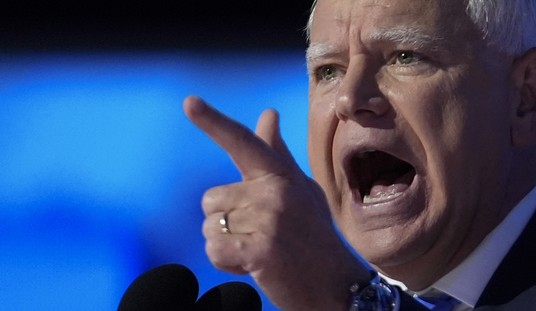In the old days of the newspaper industry, as portrayed by such films as The Front Page, His Girl Friday, and Citizen Kane, newspapers would frequently take relatively minor stories in the scope of things and build them into EARTH-SHATTERING EVENTS by way of screaming cover all-caps headlines (sort of like I did just now) in giant type. Of course, back then, most big cities had several newspapers, so competition was fierce. And journalists saw themselves as in the business of reporting news, not “changing the world.”
In contrast, at the dawn of the 21st century, the role of major metropolitan newspapers seem to be to tamp-down those big stories when they risk shaping events in negative ways for their liberal masters in Washington. Such as not reporting on Swift Vets, not reporting the John Edwards scandal, not investigating Sen. Obama’s background, or those of his “czars”, not reporting on the extracurricular activities of groups such as ACORN and SEIU, and downplaying faltering economy in 2009.
Oh, and now ClimateGate, which Clark Hoyt, the New York Times’ “public editor” (apparently the word “ombudsman” is too sexist) deems “not a three-alarm story.”
No, really. Ed Morrissey responds:
Hoyt argues that this qualified as a normal story, not the “three-alarm” variety. He reached that conclusion even though (a) the University of East Anglia CRU destroyed its raw data, discuss at length how to destroy evidence for a Freedom of Information request, and dishonestly hid numbers that contradicted their insistence that temperatures were constantly rising. Even Hoyt acknowledges the latter in his missive, even though the New York Times didn’t bother to report on the first two aspects of the story. Hoyt seems to argue here that these do not undercut the scientific premise for anthropogenic global warming (AGW), a term which he doesn’t even clearly specify.
Do scientists routinely get “petty and defensive”? Probably. Do they routinely “cheat around the edges” and still maintain credibility? I would consider that a strange argument. If science cheats, it ceases being science. And in this case, it was hardly “cheating around the edges.” It was a full-bore effort to professionally ruin anyone who challenged their imposed orthodoxy while conspiring to hide contradictory data and flat-out make up numbers to artificially support their case. And the CRU destroyed their raw data, which for any scientific endeavor isn’t at the “edges” of their work, but is the central core to their work.
Even by Hoyt’s standards, that’s a three-alarm story.
Hoyt doesn’t fare much better when it comes to the question of publishing the e-mails. Reporter Andrew Rivkin hilariously asserted last week that the Times refused to publish them because they were never intended for public scrutiny:
The documents appear to have been acquired illegally and contain all manner of private information and statements that were never intended for the public eye, so they won’t be posted here.
Hoyt tries rescuing that statement:
As for not posting the e-mail, Revkin said he should have used better language in his blog, Dot Earth, to explain the decision, which was driven by advice from a Times attorney. The lawyer, George Freeman, told me that there is a large legal distinction between government documents like the Pentagon Papers, which The Times published over the objections of the Nixon administration, and e-mail between private individuals, even if they may receive some government money for their work. He said the Constitution protects the publication of leaked government information, as long as it is newsworthy and the media did not obtain it illegally. But the purloined e-mail, he said, was covered by copyright law in the United States and Britain.
That’s a rationalization on two fronts. First, the University of East Anglia is a public university, not a private university. Next, copyright law has a fair-use exception which newspapers and other media have used for decades. No one questioned why the Times didn’t print every last e-mail in the set. But they could have published the more substantial e-mails that showed the fraud and deception in order to better inform its readers, especially since other outlets showed more courage than the Times and had already exposed the internal messages.
On the other hand, as Steve Hayward writes, the well-mannered global warming scientists may be getting a little nervous, even with the Times, and various other papers doing their best to carry water for them: “Climate Scientist to Revkin: ‘we can no longer trust you’ to carry water for us.'”










Join the conversation as a VIP Member